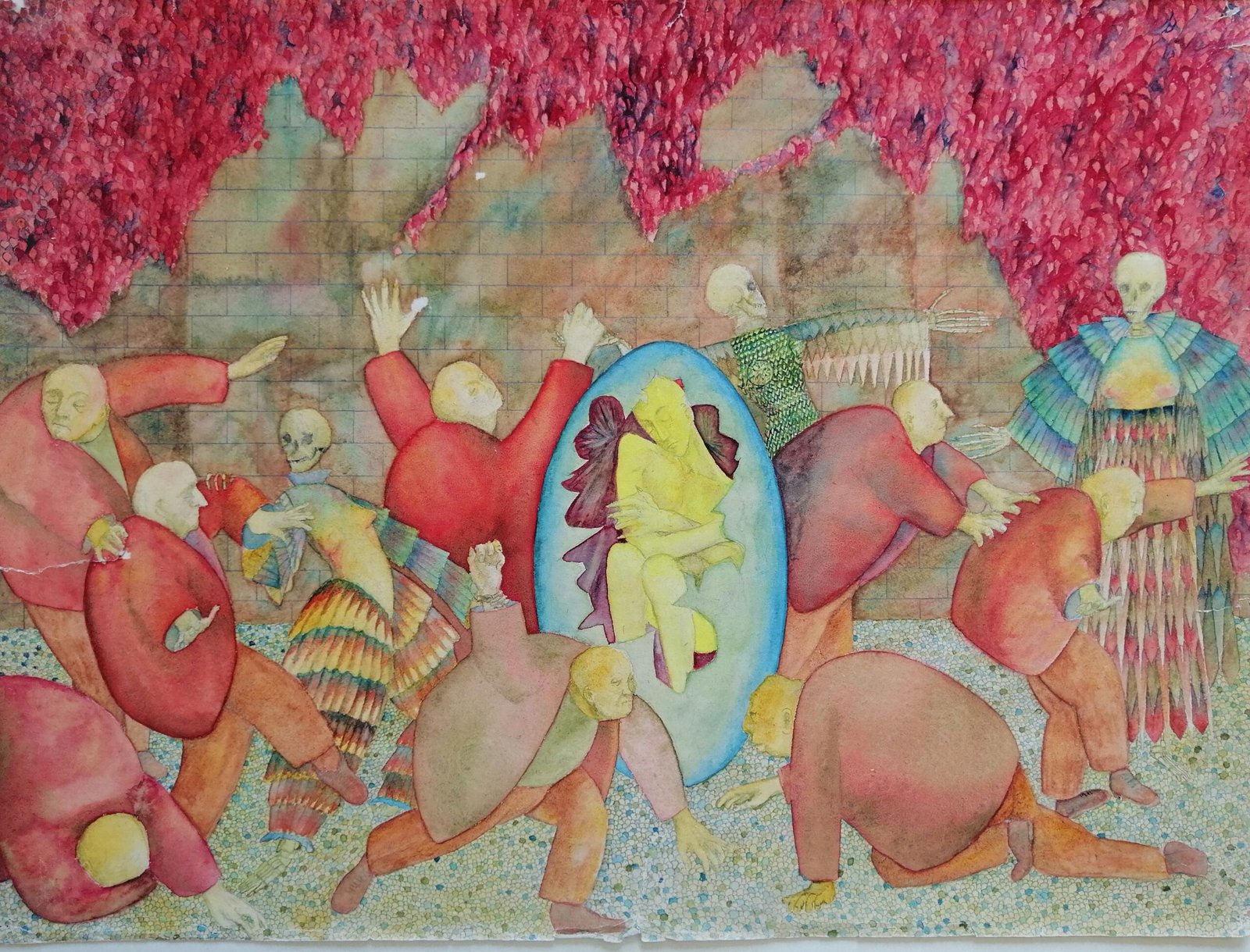‘In a dark time the eye begins to see’ is the first line of a poem by the American poet Theodore Roethke (1908-1956). It seems to me to address now, 2023.
I was in India in the ’40s and I remember one night looking at a rolling landscape of small villages, fields and woods. All was black except for tiny points of light scattered across the blackness. These were candles burning on the doorsteps of countless homes. Since then the whole world has been lit up by electric power. Cities, roads, towns, villages and isolated buildings now blaze under the winking aircraft. As if we want to eliminate the dark. Twenty-four hours of light. Do we have no longer need of the dark? In my childhood on a farm night- time was befriended by oil lamps and candles. You carried the light with you when you went into an unlit room. When I blew out the candle starlight was at times outside.
That thought came to me when I read the opening line. But the poem’s dark time is a different darkness. The now dark time is of suffering, loneliness, loss. A time also of false promises, demonic power and hidden villainy. A time of inner and outer darkness. Each of us will relate to the poem in our own way.
‘the eye begins to see’. These words came to me like a shock. What do they mean?
Further down the poem says,
‘What’s madness but nobility of soul
At odds with circumstance? The day’s on fire.
Not only are we now at odds with circumstance but the disastrous nature of our present circumstance, (our beliefs, our racism, our materialism, our politics, our economics and our loss of vision) is now visible. We can see them
In the last verse the poem says, ‘the one is One’. When we refer to humanity we refer generally to an abstract concept. Roethke writes, ‘one is One, free in the tearing wind’, I think he is talking of something real, not abstract. In each one there lives the One which can overcome the dark and see beyond the shadow.
Which I is I?
A fallen man. I climb out of my fear.
The mind enters itself, and God the mind,
And one is One, free in the tearing wind.
I remember an unusual experience that came to me when I was a student in Edinburgh in the late ’40s. I was waiting for a tram on the main thoroughfare of the city. A tram approached and stopped. I reached for the metal pole and stepped on to the platform. At the same time I had the feeling that I was united with all the passengers on the tram. This lasted only a moment, yet it has remained vividly with me these many years. Explanations are no doubt on offer but I retain a conviction that the experience has a reality at some level. Later I had a similar experience walking with two friends. I explain it as a feeling of co-existence. We are normally aware of our separateness from others. We can also have the experience of our union. It carried no feeling that it was an experience of being united to a group. It was, however an experience not just a thought.
Today our media words are transient, last but a moment. Here is the whole poem that like granite is born out of fire and endures.
l
In a dark time, the eye begins to see:
I meet my shadow in the deepening shade;
I hear my echo in the echoing wood,
A lord of nature weeping to a tree.
I live between the heron and the wren,
Beasts of the hill and serpents of the den.
ll
What’s madness but nobility of soul
At odds with circumstance? The day’s on fire!
I know the purity of pure despair,
My shadow pinned against a sweating wall.
That place among the rocks – is it a cave
Or winding path? The edge is what I have.
lll
A steady storm of correspondences!—
A night flowing with birds, a ragged moon,
And in broad day the midnight come again!
A man goes far to find out what he is –
Death of the self in a long tearless night,
All natural shapes blazing unnatural light.
lV
Dark, dark my light, and darker my desire.
My soul, like some heat-maddened fly,
Keeps buzzing at the sill. Which I is I?
A fallen man, I climb out of my fear.
The mind enters itself, and God the mind,
And one is One, free in the tearing wind.

